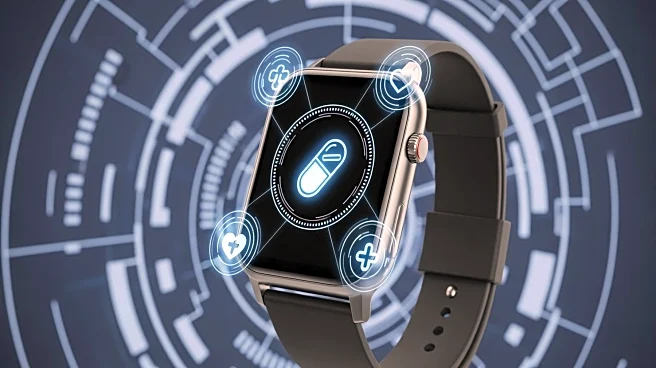What's Happening?
BioSpace has released a podcast episode featuring Oliver Eden, Senior Business Unit Director at Jabil, and Travis Webb, Chief Scientific Officer at PII, discussing the role of connected technology in decentralized
clinical studies. The conversation highlights the challenges and opportunities associated with autoinjectors and combination drug delivery systems. The focus is on how technology can improve patient compliance, build trust, and facilitate cleaner data processing in clinical research. This episode is part of BioSpace's ongoing efforts to analyze industry trends and provide insights through various media formats.
Why It's Important?
The integration of connected technology in clinical studies is crucial for enhancing patient compliance and data accuracy. As clinical trials become more decentralized, the need for reliable and efficient data collection methods grows. Improved patient compliance can lead to more accurate trial results, which are essential for the development of effective treatments. The discussion underscores the potential for technology to streamline processes and reduce errors, ultimately benefiting pharmaceutical companies, healthcare providers, and patients by accelerating the drug development timeline and ensuring safer, more effective therapies.
What's Next?
The continued exploration of connected technology in clinical studies suggests a shift towards more decentralized and patient-centric approaches. Stakeholders in the pharmaceutical and healthcare industries may increasingly adopt these technologies to improve trial outcomes. Future discussions and developments could focus on refining these technologies, addressing regulatory challenges, and expanding their application across various therapeutic areas. As the industry evolves, collaboration between technology providers and clinical researchers will be key to overcoming obstacles and maximizing the benefits of these innovations.
Beyond the Headlines
The ethical implications of using connected technology in clinical studies include concerns about patient privacy and data security. Ensuring that patient information is protected while leveraging technology for improved compliance is a critical consideration. Additionally, the cultural shift towards decentralized trials may require adjustments in how patients and healthcare providers interact, potentially leading to changes in patient engagement strategies and healthcare delivery models.









